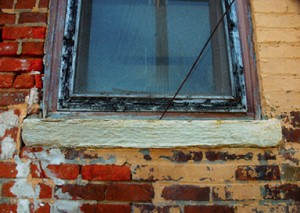 Each and every year, all of the major league teams sit down, once their season is over, and begin to think about ‘next year.’ They take a look at what they did well, what they did poorly, who is coming back and who is likely to leave (or who they are going to ask to leave…) and develop a strategy to improve.
Each and every year, all of the major league teams sit down, once their season is over, and begin to think about ‘next year.’ They take a look at what they did well, what they did poorly, who is coming back and who is likely to leave (or who they are going to ask to leave…) and develop a strategy to improve.
The good teams embrace the process and figure out a way, each and every year, to find the best players to build their roster. The bad ones always seem to figure out how to not do it well and they tend to wallow in mediocrity year upon year.
In real estate, the same holds true. Those that understand how the game is played choose a team that knows their market. Whether or not it is the Realtor, Home Inspector, Attorney, Lender, Contractor or ESPECIALLY an Architect, a buyer or seller should seek to understand the skill sets of their potential team and choose accordingly. While true in all areas of real estate, it is even more so in older, urban and/or historic neighborhoods.
Working in an environment that is historic adds another level regulation to the process. A neighborhood with historic designation means that programs may be available to offset renovation costs. However, these programs come with the caveat that much of what will be allowable is governed by an alphabet soup of agencies designed to protect the fabric of the neighborhood. CAR, DHR, NPS are just a few of the governing agency initials that may need to approve drawings for additions or renovations. Make sure your architect is both highly familiar with those at the City (or county) that review plans and that they can engage in a very specific conversation about how the programs such as the Historic Tax Credit program, Tax Abatement program and/or enterprise zones can help.
It is also worth an few minutes to try and figure out who is on the relevant review boards, look for the architects that serve and consider using them. Generally speaking, architects will be members of a wide variety of panels within any local government from City Council to Architectural Review to Planning Commission.
Another idea in architect selection is talk with the Association that represents the neighborhood. Most well organized associations have a committee that hears inquiries on real estate issues. Meeting with these folks will usually indicate their trust levels with certain architects. Some architects have pushed through controversial projects or been involved with properties whose renovation results were less than well received. Inheriting the baggage from a project that went poorly by using a certain architect (or contractor) may be counter productive. The real estate committees within the neighborhood association will be more than happy to let you know if they do not approve of a certain individual or group.
Remember that ultimately the success or failure will largely be determined by the collective knowledge of the team. Correctly choosing the team members will best create the groundwork for a successful outcome.
